- Home
- slideshows
- miscellaneous
- Here are all the known contacts between the Trump campaign and Russian government-linked people or entities
Here are all the known contacts between the Trump campaign and Russian government-linked people or entities
November 2015: Trump's personal attorney Michael Cohen reaches out to Russian weight-lifter Dmitry Klokov in an attempt to secure a deal with Russian President Vladimir Putin to build a Trump Tower in Moscow.

January 2016: Cohen reaches out to Kremlin spokesperson Dmitry Peskov asking about the Trump Tower deal.
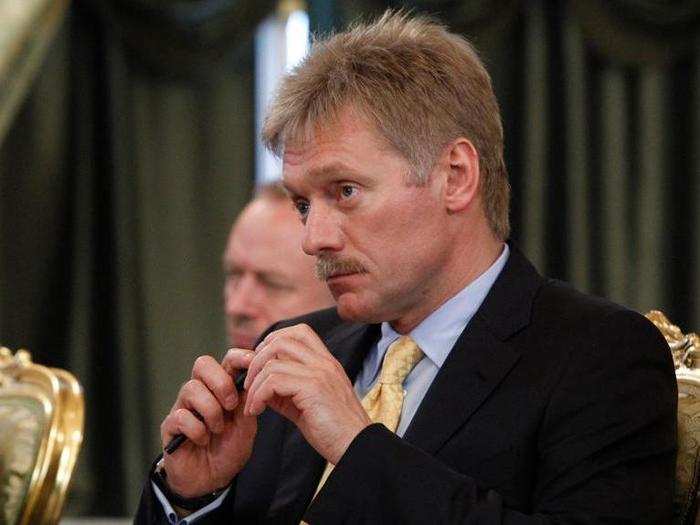
The Kremlin has since confirmed that they received Cohen's email, but did not reply. Cohen then called Peskov's assistant on or around Jan. 20, describing to her his position at the Trump Organization and how the Kremlin could help arrange the Trump Tower deal.
Cohen "requested assistance in moving the project forward, both in securing land to build the proposed tower and financing the construction," prosecutors say.
The Trump Tower deal is coming under renewed scrutiny in light of a recent bombshell Buzzfeed News report claiming that Trump personally directed Cohen to lie about the deal in his September 2017 testimony before the Senate Intelligence Committee.
Sources: Washington Post, US Department of Justice, Buzzfeed News
March 14, 2016: Trump campaign foreign policy adviser George Papadopoulos first meets with Joseph Mifsud in Italy.
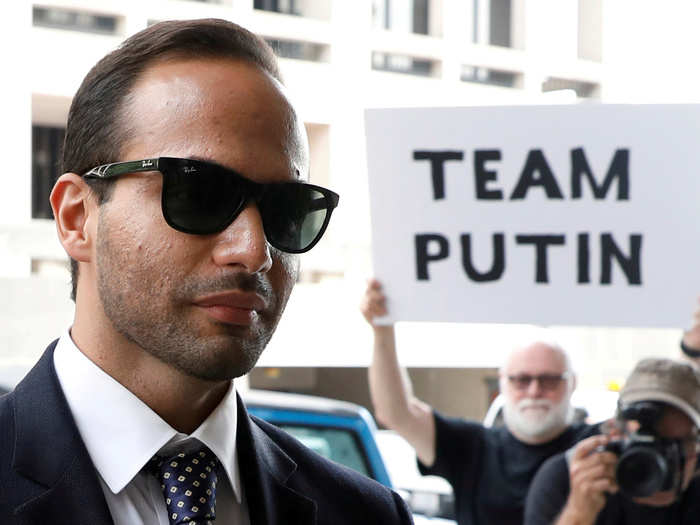
Papadopoulos, 29, joined the Trump campaign as an unpaid adviser in March 2016.
But from his low-level position, Papadopoulos took on an outsize role in trying to facilitate communications and set up meetings between the Trump campaign and Russia.
One of his main contacts was Joseph Mifsud, the director of the London Academy of Diplomacy, a for-profit college program that was later shut down. Mifsud boasted of having "substantial connections to Russian officials," according to court documents.
Despite having scant credentials or expertise on Russia, Mifsud became active in elite Russian political circles after one of his interns, a 24-year-old Russian woman, introduced him to several high-level diplomats and scholars, The New York Times reported.
Mifsud even gained admission into the prestigious Valdai Discussion Club, a group of foreign policy scholars who host an annual meeting with Putin.
Sources: The New York Times, Lawfare, Washington Post
March 24, 2016: Papadopoulos, Mifsud, and a Russian woman meet in London to discuss setting up a meeting between the Trump campaign and Russia.
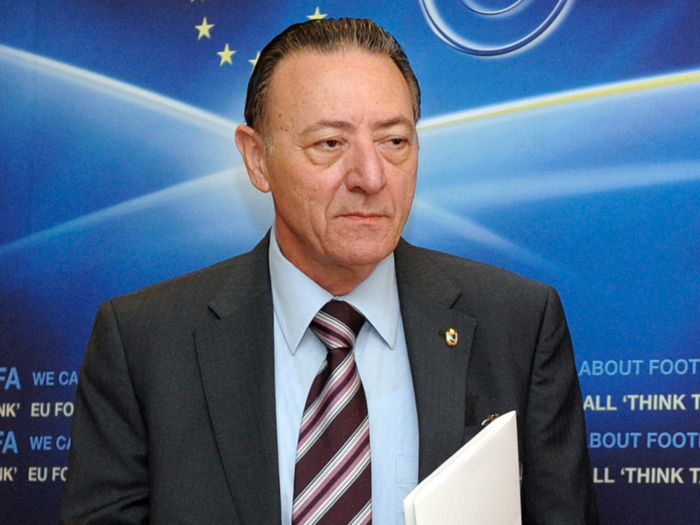
Ten days after Papadopoulos and Mifsud first made contact in Italy, the two met again — this time with a Russian woman who Papadopoulos described as "Putin's niece" in an email to Trump campaign co-chairman Sam Clovis.
The woman, later identified as Olga Polonskaya, has no relation to Putin.
In April, Papadopoulos and Polonskaya exchanged several emails discussing the possibility of the Trump campaign making a foreign policy trip to Russia.
“We are all very excited by the possibility of a good relationship with Mr. Trump. The Russian Federation would love to welcome him once his candidature would be officially announced,” Polonskaya wrote in one email.
In October 2017, Papadopoulos pleaded guilty to making false statements to the FBI regarding his contacts with Russian-linked people, and became a cooperating witness in the Mueller probe.
Sources: The New York Times, US District Court for the District of Columbia
April 2016: Trump campaign chairman Paul Manafort shares polling data with Konstantin Kilimnik, a Russian-Ukrainian political operative.
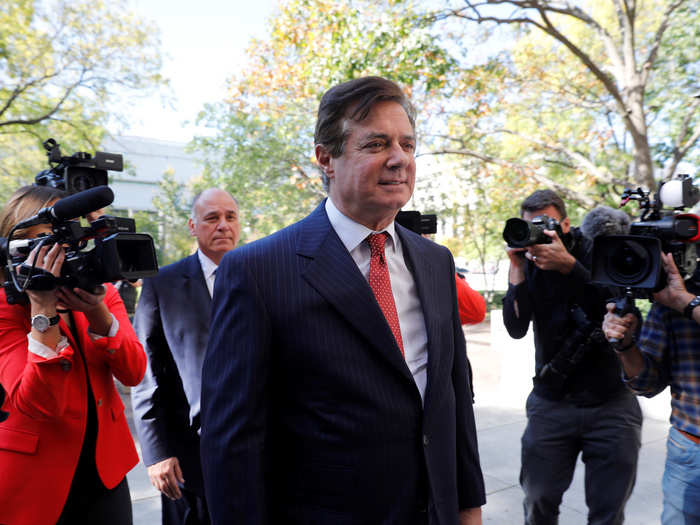
Konstantin Kilimnk, a political operative and former member of Russian intelligence, had been a long-time associate of Manafort, who worked for several years in Ukraine and Eastern Europe as a political consultant and financier.
According to a court filing submitted by Manafort's lawyers, Manafort shared campaign polling data with Kilimnik. The New York Times reported the data was then passed onto Ukrainian oligarchs Serhiy Lyovochkin and Rinat Akhmetov, who reportedly owed Manafort money.
Source: New York Times
April 2016: Manafort and Kilimnik discuss briefing Russian billionaire Oleg Deripaska on the campaign's operations
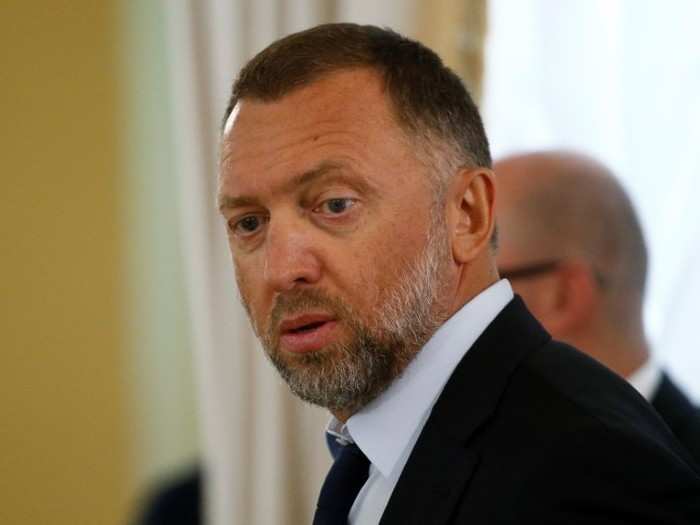
Manafort inquired if Russian billionaire oligarch Oleg Deripaska knew about Manafort joining the campaign, to which Kilimnik replied, "absolutely." Manafort then asked, "How do we use to get to whole?"
The emails between Manafort and Kilimnik suggest that Manafort sought to take advantage of the influence he had from his role on Trump's campaign, which was unpaid, to make up for a significant financial debt he owed to Deripaska.
Deripaska gave Manafort almost $19 million dollars in 2008 for use of the purchase of a Ukrainian company, but the investment fell through and their relationship went south. It was later revealed in June 2018 that Manafort owed Deripaska another $10 million on top of the previously known $19 million.
Sources: Business Insider, The Atlantic,
Spring 2016: Cohen and Russian businessman Felix Sater discuss a new Ukrainian piece plan with Ukranian politician Andrii V. Artemenko
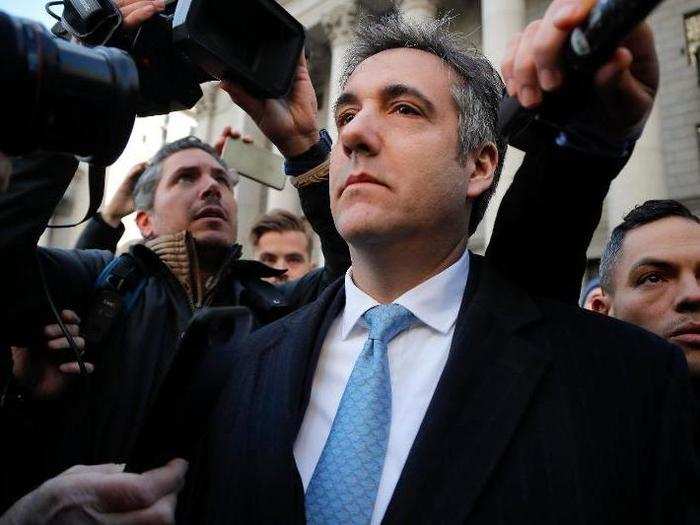
The plan entailed the US lifting sanctions on Russia in exchange for Russia pulling its support for pro-Russia separatists in Ukraine, but allowing Russia to continue its annexation of the Crimean Peninsula unchallenged.
Artemenko said he discussed the proposal with Cohen and Sater "at the time of the primaries, when no one believed that Trump would even be nominated.”
Manafort's lawyers also said he and Kilimnik discussed the peace plan, which was later passed on to former National Security Adviser Michael Flynn, on at least one occasion.
The Ukrainian ambassador to the US told The New York Times, "the plan could have been pitched or pushed through only by those openly or covertly representing Russian interests.”
Sources: Business Insider, New York Times
April 18, 2016: Mifsud introduced Papadopoulos over email to Ivan Timofeev, a Director at the Kremlin-linked Russian International Affairs Council who claimed to have ties to Russia's foreign ministry.
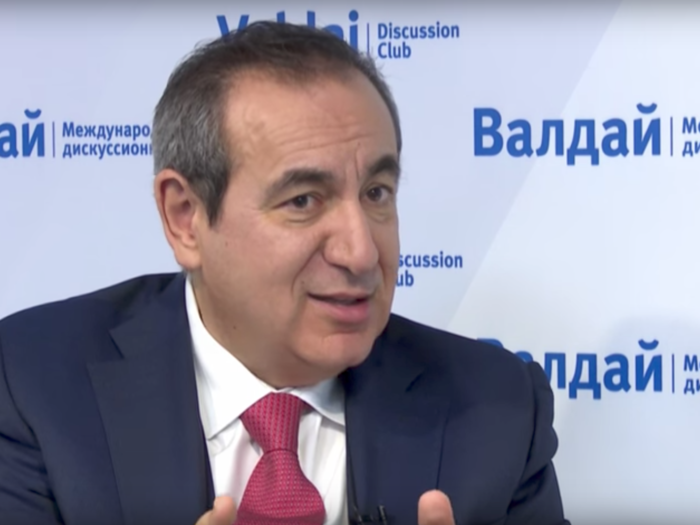
Papadopoulos and Timofeev exchanged several emails during that period and had at least two Skype conversations, discussing the logistics of setting up a meeting between the Trump campaign and the Russian government.
Sources: The New York Times, US District Court for the District of Columbia
April 26, 2016: During a meeting in London, Mifsud told Papadopoulos that the Russians had "dirt" on Hillary Clinton.
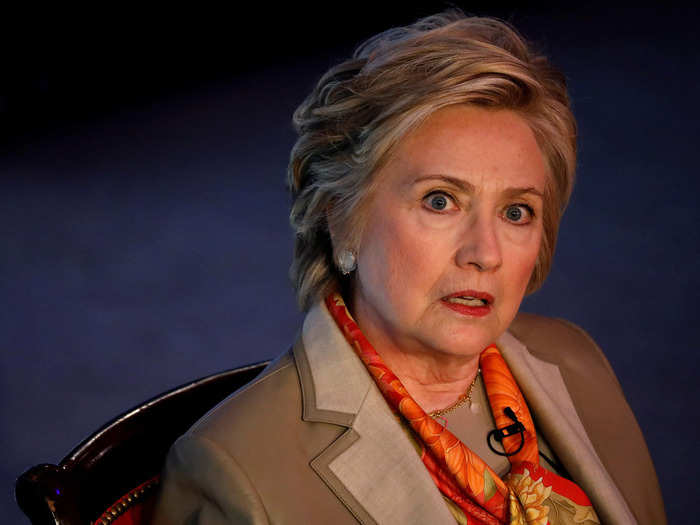
In the meeting, Mifsud reportedly claimed the "dirt" on Clinton came in the form of "thousands of emails."
The April meeting took place three months before Wikileaks released approximately 20,000 emails hacked from the server of the Democratic National Committee, which revealed how DNC staffers sought to secure the nomination of Hillary Clinton over Bernie Sanders.
The next month, Papadopoulos told Australian intelligence official Alexander Downer about the Clinton emails over drinks at a swanky London bar. Downer then tipped off US authorities to the conversation, sparking the initial FBI investigation into the Trump campaign's contacts with Russia.
In December 2017, Papadopoulos pleaded guilty to one count of lying to the FBI about his conversations with Mifsud. He served 14 days in prison in November 2018.
Source: The New York Times
April 27, 2016: Then-campaign advisors Jeff Sessions and Jared Kushner met with Russian ambassador Sergey Kislyak at a reception before Trump gave a speech on foreign policy at the Mayflower Hotel.
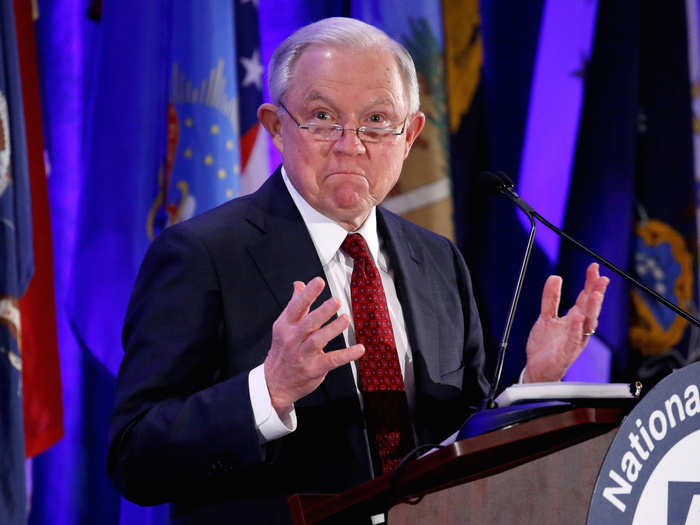
In the speech, which was edited by Papalodopous, Trump vowed to improve relations with Russia by collaborating on "shared interests."
Ambassador Kislyak said he and Sessions discussed policy matters related to Russia, which Sessions denied. US intelligence officials later described them as having had a "substantive conversation."
After the event, Papadopoulos emailed then-campaign manager Corey Lewandowski saying “Putin wants to host the Trump team when the time is right.”
Source: Washington Post
April 29-30: George Papadopoulos continues to communicate with Mifsud and Polonskaya.
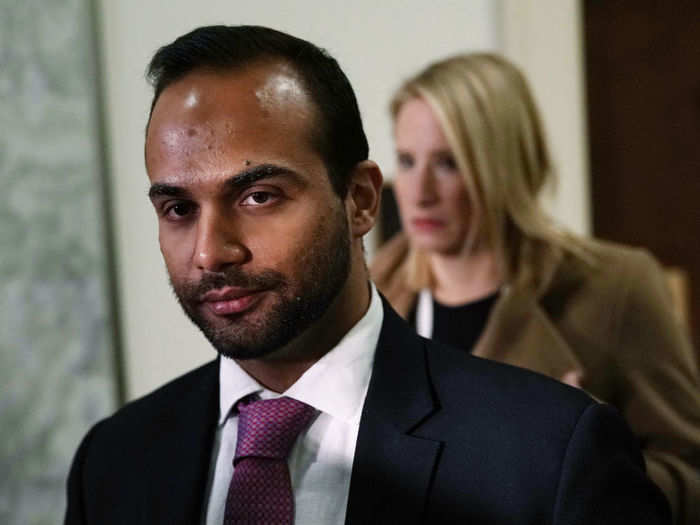
On the 29th, he emailed Polonskaya again about a potential trip to Russia. On the 30th, he reached out to Mifsud to thank him “for his ‘critical help’ in arranging a meeting between the Campaign and the Russian government.”
Source: US Department of Justice
Early May 2016: Trump campaign advisor Roger Stone meets with a Russian offering him dirt on Hillary Clinton in exchange for $2 million. He declines.
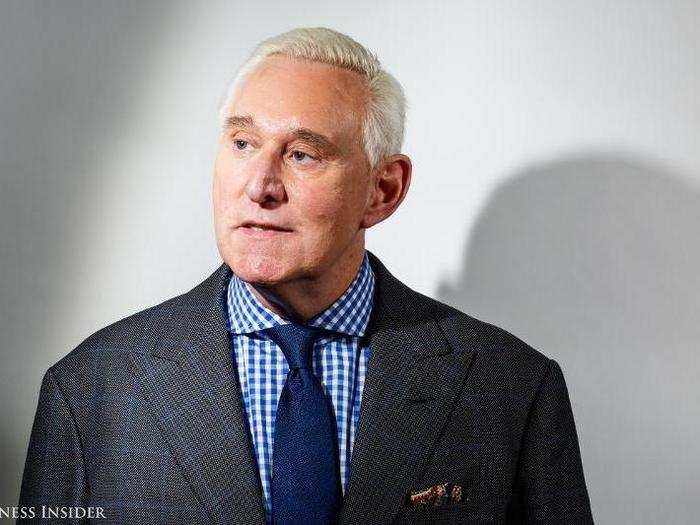
The 2016 meeting between Stone and the Russian, Henry Greenberg, was not disclosed to congressional investigators and unknown until the Washington Post reported on it in June of 2018.
Stone reportedly told Greenberg that Trump "doesn't pay for anything."
In text messages between Stone and Trump campaign communications official Michael Caputo, Stone said Greenberg "wants big &$ for the info--waste of time."
Greenberg, who has also used the last name Oknyansky, has previously worked as an FBI informant but was not doing so at the time of the meeting.
Sources: Washington Post
May 4, 2016: Timofeev emails Papadopoulos claiming his colleagues in the Ministry of Foreign Affairs (MFA) were "open to cooperation."
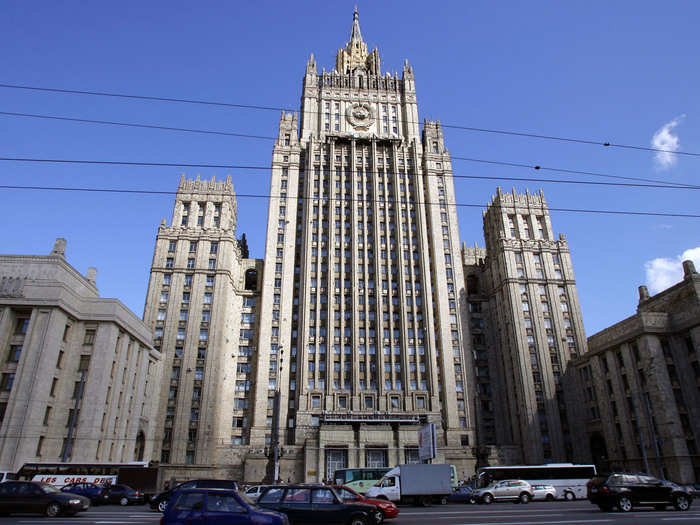
Timofeev emailed Papadopoulos again on May 8th to inquire about putting him in contact with the US desk at the MFA.
In the following weeks, Timofeev and Papadopoulos had at least one Skype call where Timofeev reported a "good reaction" to the idea of a visit from his colleagues in the foreign affairs ministry.
In a May 13th email to Papadopoulos, Mifsud wrote, "we will continue to liaise through you with the Russian counterparts in terms of what is needed for a high level meeting of Mr. Trump with the Russian federation.”
Sources: US Department of Justice
May 21, 2016: Donald Trump Jr. dines with a director for Russia's central bank at the National Rifle Association's annual convention.
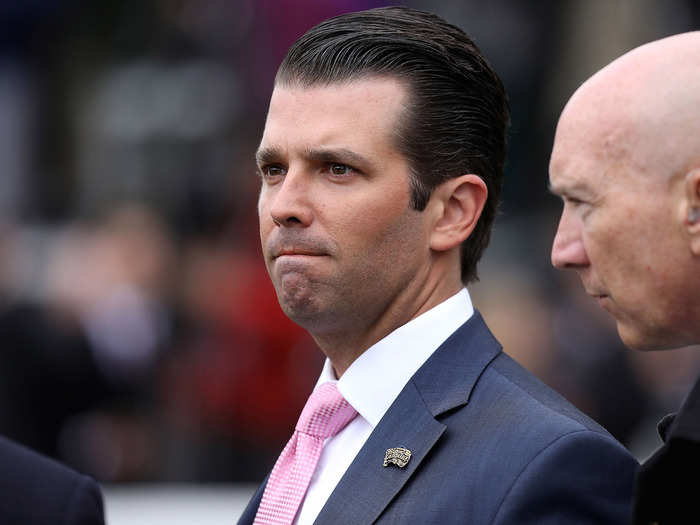
Alexander Torshin, a former Russian senator from Putin's party and a former senior official at Russia's central bank told Bloomberg he had dinner with Donald Trump Jr., the president's son, at the annual convention for the National Rifle Association.
The White House confirmed they had met, but denied that they dined together. Torshin also reportedly tried to meet with Trump, an offer turned down by Jared Kushner.
Torshin is now accused of directing an effort to infiltrate American conservative organizations including the National Rifle Association and the National Prayer Breakfast to promote Russian interests, traveling everywhere from Alaska to Tennessee in his efforts.
He has since been sanctioned from the US Treasury Department, meaning he can no longer travel to the US.
Source: The Washington Post, NPR
June 3-7, 2016: The son of a prominent Russian real estate developer reaches out to Donald Trump Jr. promising incriminating information about Hillary Clinton.
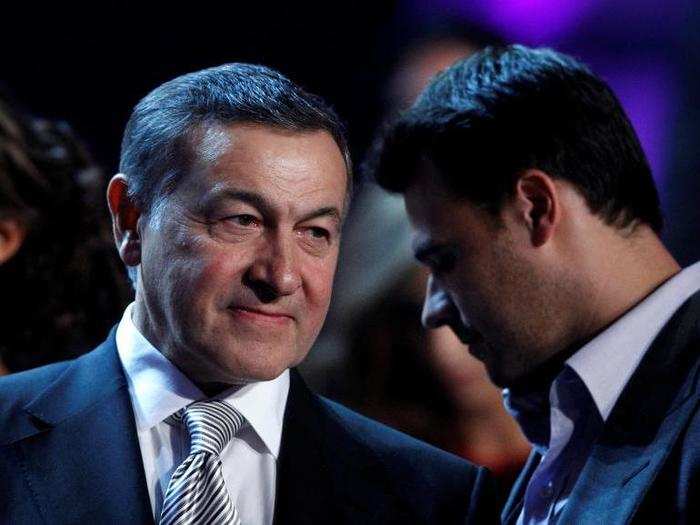
Goldstone contacted Donald Jr. on behalf of one of this clients, musician Emin Agalarov, whose father is a real estate developer with close ties to Putin.
In an email, Goldstone said Agalarov could provide “very high level and sensitive information” that would "incriminate Hillary" and was a part in “Russia and its government’s support for Mr. Trump.”
Donald Jr. quickly replied: “If it’s what you say I love it especially later in the summer.” Donald Jr. and Agalarov then spoke on the phone at least twice between June 6th and 7th.
On June 7th, Donald Trump promised "a major speech about Hillary Clinton's crimes."
Sources: Donald Trump Jr., YouTube, The Washington Post
June 9, 2016: Trump campaign officials meet Russian lobbyists in Trump Tower.
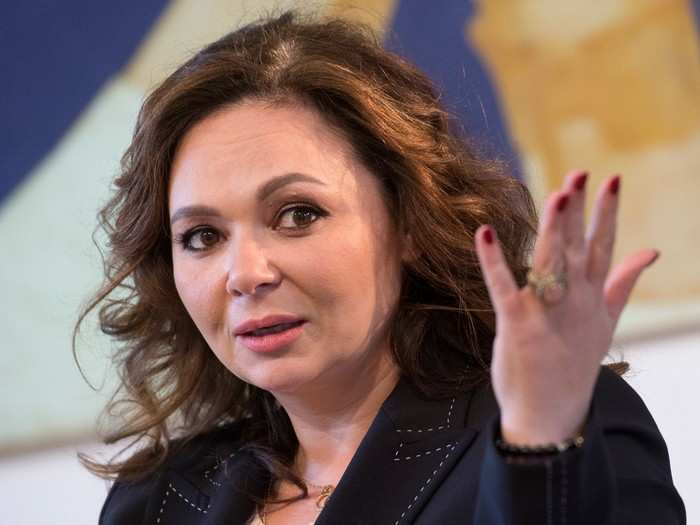
In what is now known as the infamous "Trump Tower meeting," Donald Trump Jr, Jared Kushner, and Paul Manafort met with Russian attorney and Kremlin affiliate Natalia Veselnitskaya, as well as a four other people affiliated with Russia in Trump Tower in Manhattan.
The Trump campaign attended the meeting under the impression that they would receive the damaging information about Clinton they were promised. But Veselnitskaya came with nothing on Hillary Clinton. Her mission was instead to prove that major Democratic donors were evading taxes, and to lobby against the Magnitsky Act.
The Magnitsky Act, passed in 2012, freezes the assets and real estate and bars entry to the US for high-level Russian officials suspected of committing human rights abuses. In retaliation for the Act, Russia banned US adoptions of Russian children.
Veselnitskaya later said Donald Jr. seemed receptive to re-visiting the Magnitsky Act if his father were elected. Donald claimed Veselnitskaya was there in an unofficial capacity.
Subsequent reporting, however, suggests Veselnitskaya was in fact working on behalf of the Kremlin at the time. A memo she brought with her to the meeting almost identically matched one written by Russia's chief prosecutor.
Sources: The New York Times, Bloomberg, Business Insider
April-May 2016: Papadopoulos continues to communicate with Timofeev in his efforts to arrange a meeting between the Trump campaign.
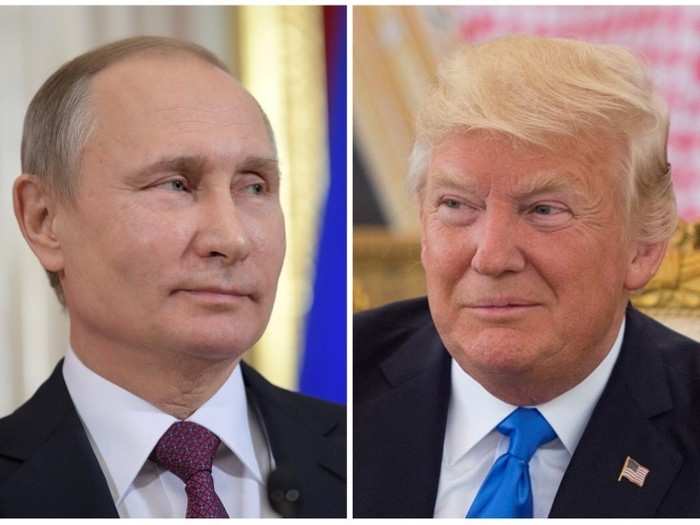
The two had several communications over email and Skype.
Source: The Washington Post
July 7-8, 2016: Carter Page gives a speech in Russia.
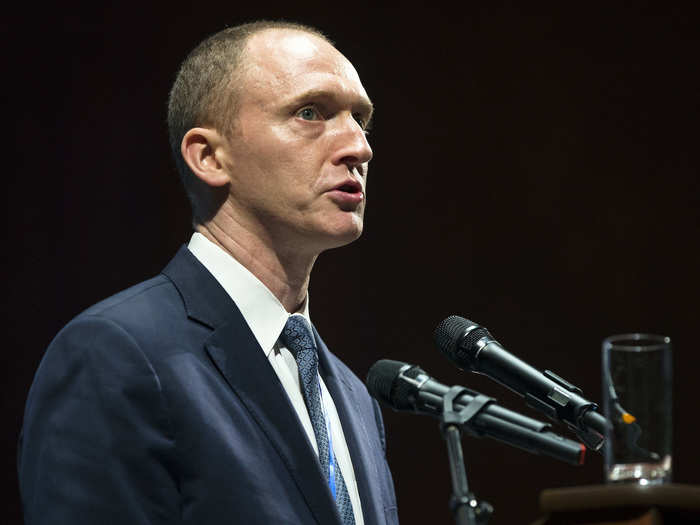
Trump campaign foreign policy advisor Carter Page went on a trip to Russia to give a speech at the commencement ceremony for the New Economic School in Moscow, Russia.
While there, he met with Andrey Baranov, head of investor relations at Russian state oil company Rosneft, and with Russian deputy prime minister Arkady Dvorkovich.
Page became under investigation by the FBI in September 2016 for pursuing contacts with Russians under sanction by the Magnitsky Act, including the CEO of Rosneft.
After he stepped down from his role in the Trump campaign in fall 2016, the FBI obtained a Foreign Intelligence Surveillance Court (FISC) to surveil Page's communications. They suspected him of being a foreign agent engaging in intelligence operations on behalf of the Russian government.
Page, however, was never charged with a crime.
Sources: Business Insider, New York Times
July 18-20, 2016: Jeff Sessions, J.D. Gordon, and Carter Page all spoke to Russian Ambassador Sergei Kislyak at the Republican National Convention in Cleveland, Ohio.
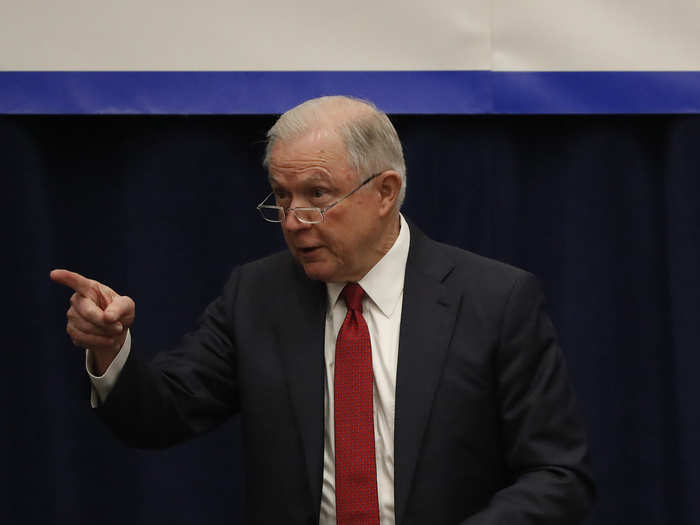
Trump campaign foreign policy advisors J.D. Gordon and Carter Page told congressional investigators they met Kislyak at an RNC event attended by other diplomats.
Gordon said his interaction with Kislyak wasn't lengthy, but Page told congressional investigators that when he spoke to Kislyak, the subject of American sanctions on Russia "may have briefly come up in some context."
Sessions, who spoke with Kislyak after speaking at a private luncheon, originally did not disclose the meeting to congressional investigators.
Just a day after Trump became the Republican nominee for President, Wikileaks released over 20,000 emails obtained through the hacking of the Democratic National Committee by Russia.
Source: Washington Post, Business Insider
July 7, 2016: Manafort offers "private briefings" on the campaign to the Kremlin-linked oligarch Oleg Deripaska.
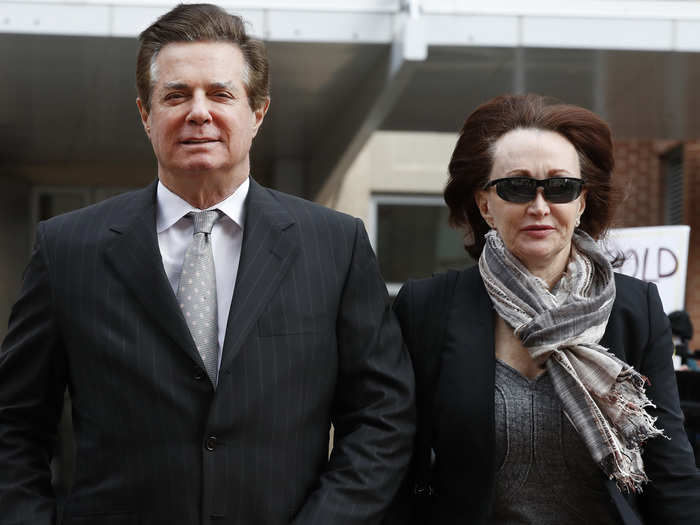
The Washington Post reported in September 2017 that Paul Manafort had, over a period of months, corresponded with Kilmnik on the subject of giving "private briefings" on the Trump campaign to Deripaska, the oligarch to whom Manafort owed tens of millions of dollars.
The emails, which were subsequently turned over to both Special Counsel Mueller's office and to congressional investigators, don't show proof that Deripaska was made aware of the offer or that any private meetings or briefings actually occurred.
Manafort faces two separate criminal trials on a slew of federal charges brought by the special counsel's office, to all of which he has plead not guilty.
Neither of the trials are explicitly related to the Trump's campaign's communications with Russia, and revolve mostly around Manafort's decades of working on behalf of Eastern European governments.
Manafort went to trial and was convicted on 8 charges of tax and bank fraud in the Eastern District of Virginia in August 2018. He entered into a plea agreement with Mueller ahead of his second trial – but the deal fell apart when Mueller accused Manafort of lying in his conversations with investigators.
Source: Business Insider, Washington Post
August 2016: Manafort and Kilimnik have more meetings.
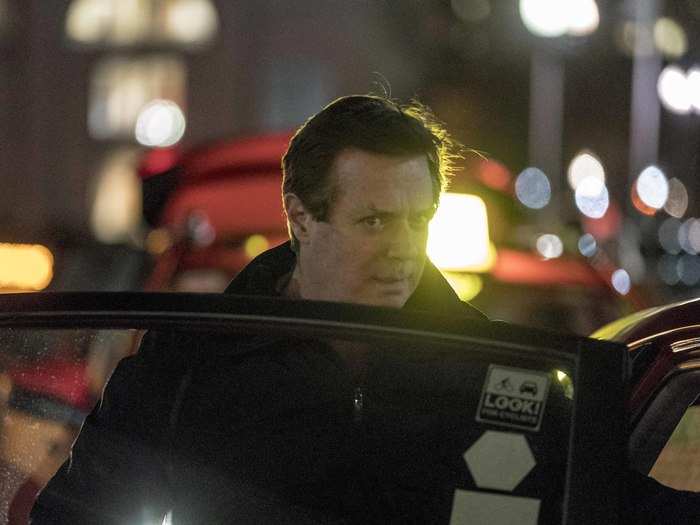
Manafort and Kilimnik agreed to meet in New York twice, and they reportedly did so in early August. The meeting became a subject of interest to investigators, but Kilimnik maintained it was to discuss private matters and had nothing to do with politics or the campaign.
On August 14th, The New York Times published a story revealing Manafort had been secretly paid millions of dollars off the books by Ukrainian president Victor Yanukovych's party.
Soon after, the Associated Press reported that Manafort's political consulting firm had carried out lobbying on behalf of Yanukovych's party in the US, but hadn't registered as a foreign agent with the State Department.
Manafort formally resigned from the Trump campaign on August 19th. His close aide and deputy Rick Gates remained on staff.
Sources: Associated Press, New York Times, Washington Post
August 14, 2016: Roger Stone direct messages Guccifer 2.0, a persona created by Russian intelligence who claimed responsibility for the hack of the DNC's emails, on Twitter.
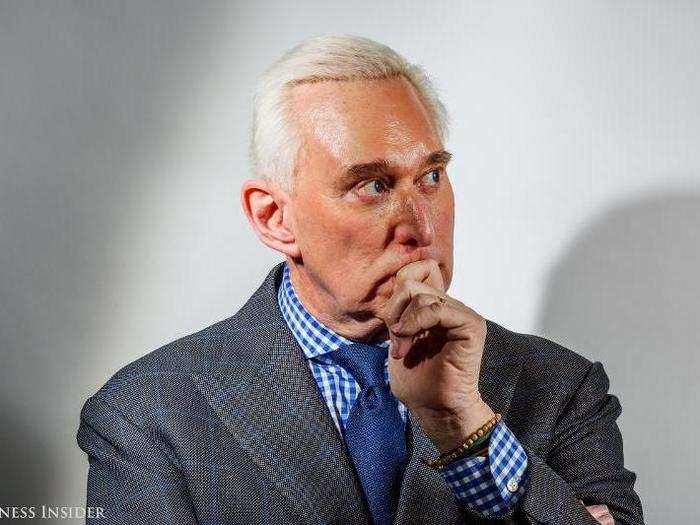
"Glad to see you are re-instated," Stone wrote to Guccifer after a previous suspension of his Twitter account had been lifted.
After the Washington Post reported that the DNC was hacked by Russian operatives, Stone responded by writing in Breitbart in July 2016 claiming that Guccifer, "a lone hacker," and not the Russian government carried out the hacking.
Over the following weeks, Stone and Guccifer exchanged several messages on Twitter in which Guccifer expressed admiration for Stone and offered to assist the Trump campaign.
"please tell me if i can help u anyhow," Guccifer wrote in one message.
US intelligence officials had long suspected that Guccifer was either a real person linked to Russian intelligence or a fake persona they had created. In March of 2018, that suspicion was confirmed when Guccifer accidentally revealed himself to be Russian security officer.
In July 2018, the Russian intelligence officers who had created the Guccifer profile were charged by the Special Counsel for conspiracy against the United States, aggravated identity theft, and money laundering in relation to the hacks of the DNC, DCCC, and Clinton campaign.
The indictment mentions a "US person" in regular contact with "senior campaign officials," which Stone said he believes to be referencing himself.
Sources: Business Insider, JustSecurity, Business Insider ,ABC
September 2016: Trump campaign aide Rick Gates makes contact with an unidentified person with ties to Russian intelligence.
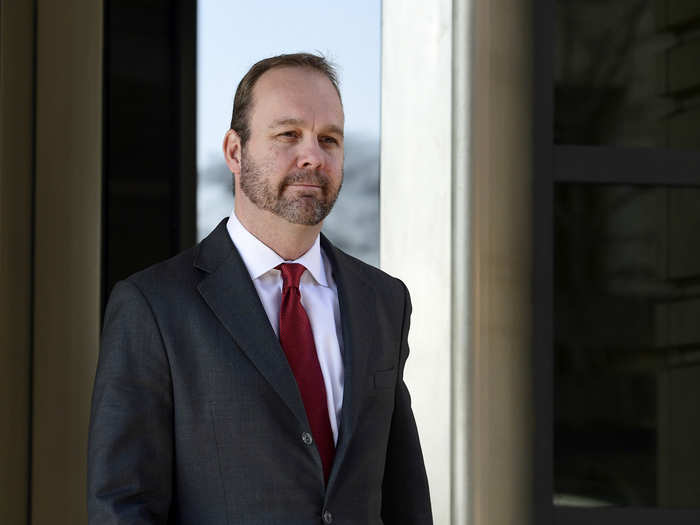
A court filing released in March 2018 from special counsel Mueller's office revealed that Rick Gates — Manafort's former deputy — had contacts with an unidentified person connected to Russian intelligence while Gates worked on the Trump campaign.
Those contacts took place during September and October of 2016, according to the special counsel's office.
Gates, along with Manafort, was indicted by a grand jury on 12 counts of conspiracy, money laundering, making false statements to investigators, and failing to register as a foreign agent in October 2017.
In February 2018, Gates made an agreement to plead guilty to one count of making false statements and one count of conspiracy against the United States in exchange for cooperating with Mueller's investigation.
Sources:CNN, Business Insider
September 8, 2016: Sessions met with Ambassador Kislyak in his Washington, DC Senate office.
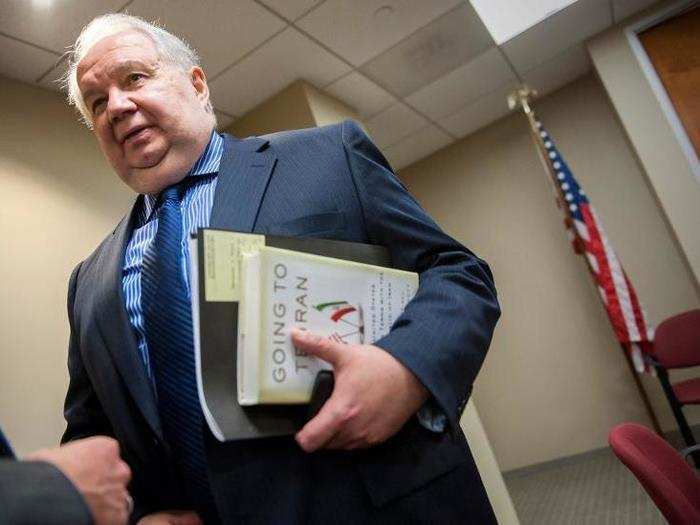
Sessions said the meeting, which was not originally disclosed during his January 2017 confirmation hearing, was also attended by two or three of his staffers. The Washington Post broke the story two months after the hearing.
In March of 2017, Sessions said they “listened to the ambassador and what his concerns might be,” and discussed issues such as terrorism, travel to Russia, and Ukraine in the September 2016 meeting.
“I don’t recall any specific political discussions," Sessions remarked.
When Sessions' previously undisclosed contacts with Russians were revealed, several top democrats called on him to resign, accusing him of perjury. Sessions later recused himself altogether from presiding over the Russia investigation, much to Trump's chagrin.
Source: Business Insider, Washington Post
September 9, 2016: Guccifer 2.0 contacts Stone again with data obtained through hacking.
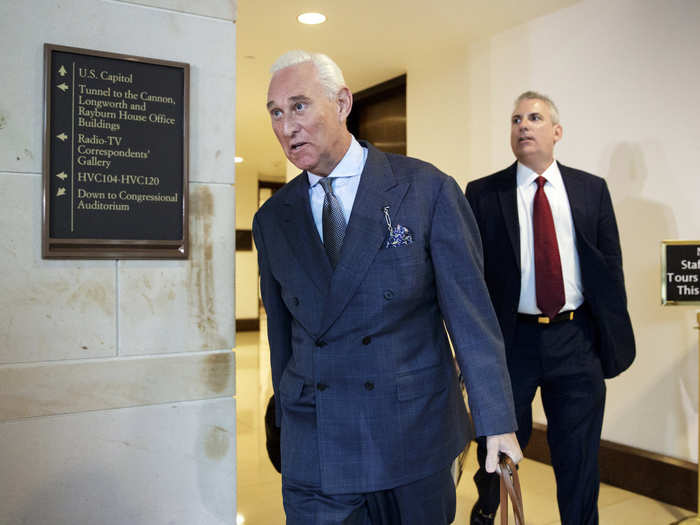
Guccifer 2.0 direct messaged Stone a link to Florida political operative's blog, which published Florida voter turnout data obtained by Guccifer in a hack of the Democratic Congressional Campaign Committee (DCCC).
Stone replied, deeming the information "pretty standard."
Source: Wall Street Journal, Business Insider
September 20, 2016: Wikileaks and Donald Trump Jr. begin a month-long series of communications over Twitter.
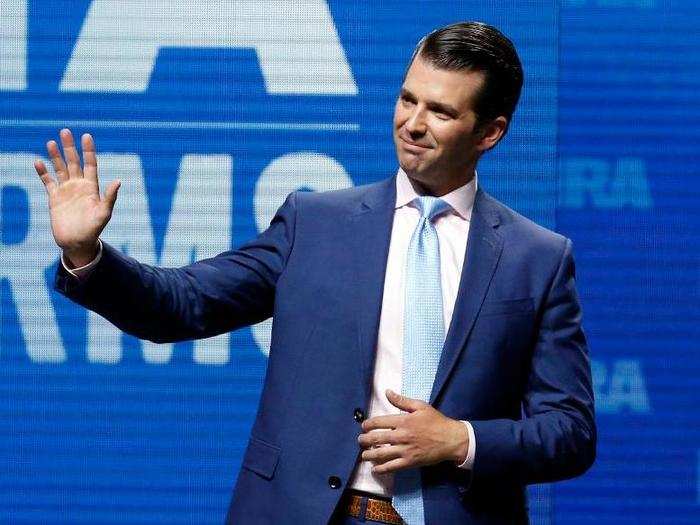
Wikileaks reached out to Trump Jr. to send him the username and password for a website belonging to a "PAC run anti-Trump site."
The US intelligence community now believes "with high confidence" that the Russian government enlisted the help of Wikileaks in disseminating hacked emails from the DNC, according to a report from the Office of the Director of National Intelligence.
They published and distributed thousands of emails hacked from the DNC on the first day of the Democratic National Convention, and later released hacked emails from the email account of Clinton staffer John Podesta the day after the release of the Access Hollywood tape in which Trump bragged about groping women.
Trump Jr. responded the following day, thanking Wikileaks for the information, and telling them he would "ask around" about it. He then forwarded the tweet to several senior campaign officials.
A few weeks later, Wikileaks asked Trump Jr. to "comment/push" an article about Hillary Clinton, which he did. Trump Jr. then inquired about a unpublished leak referenced in one of of Stone's tweets.
On October 12th, Wikileaks requested that Trump Jr. tell his father to tweet out links to Wikileaks stories, which he did.
The messages between Trump Jr. and Wikileaks were turned over to congressional investigators.
Source: The Atlantic, The Office of the Director of National Intelligence
September-October 2016: Trump national security advisor JD Gordon communicates with Maria Butina, an accused Russian spy.
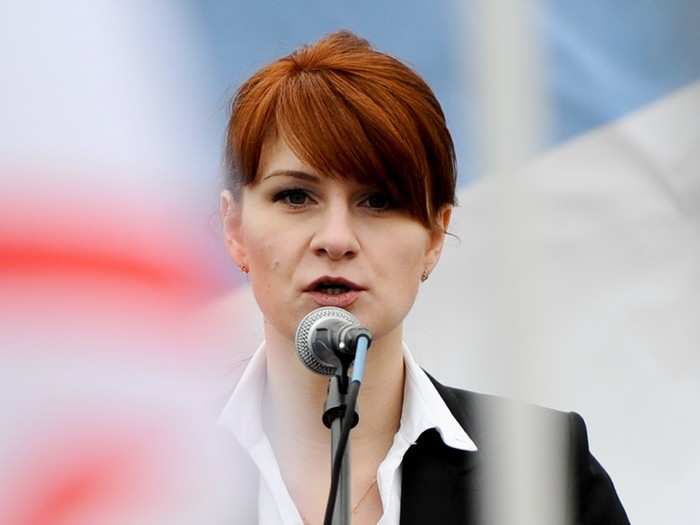
The Trump campaign's then-national security director JD Gordon had some social interactions with gun rights activist Maria Butina, who was indicted on charges of being a Russian spy in July 2018.
Gordon, a former Pentagon spokesman, met Butina at multiple Republican party events and communicated with her over email before Trump's election in September and October 2016, according to emails reviewed by the Washington Post.
The emails involved discussions of US-Russia relations and some social invitations, in which Gordon invited Butina to a Styx concert, and then to his birthday party.
Prosecutors in Washington, DC are alleging that Butina, 29, infiltrated American right-wing circles and organizations such as the National Rifle Association, to advance Russian government interests without registering as a foreign agent, as is required by US law.
In a statement to the Post, Gordon called the Butina story "sensationalized clickbait," and denied any wrongdoing, arguing that Butina was eager to network and discuss US-Russian relations with a number of Republican officials.
In December, Butina plead guilty to one count of conspiring to act as unregistered foreign agent on behalf of Russian interests.
Sources: Washington Post, Business Insider, New York Times
October 13, 2016: Stone directly messages WikiLeaks over Twitter. They had previously communicated only through an intermediary.
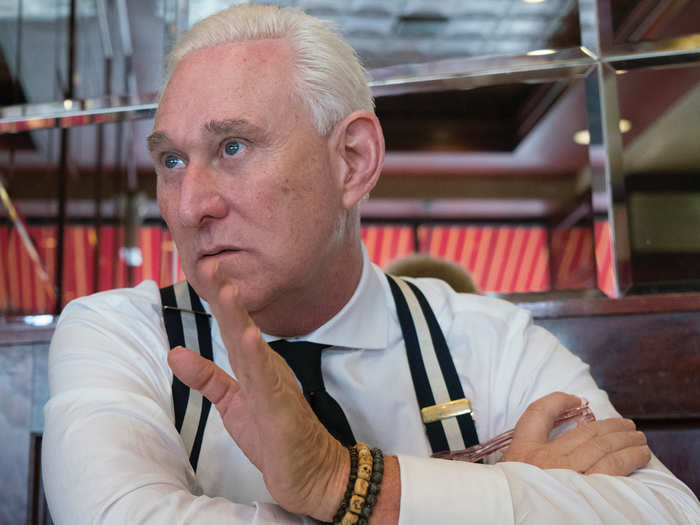
Stone messaged WikiLeaks confronting them with his "defense of Assange and the organization" on Twitter after WikiLeaks put out a statement claiming to have never spoken with Stone.
Stone previously testified under oath before congress in September 2016 that he had communicated with WikiLeaks through an intermediaries, later revealed to be radio host Randy Credico and conspiracy theorist Jerome Corsi.
After asking Stone not to publicly affiliate himself with Wikileaks, Stone told them to "remember who their friends were."
On November 9th, the day after the presidential election, Wikileaks reached out to Stone telling him they were "more free to communicate."
The July 2018 indictment of Russian security officers into the hackings of Democratic operations identifies WikiLeaks as a "hostile non-state actor" allegedly enlisted by the Russian GRU to disseminate hacked emails.
Source: The Washington Post, The Atlantic
November 10, 2016: Emin Agalarov contacts Trump Jr. again.
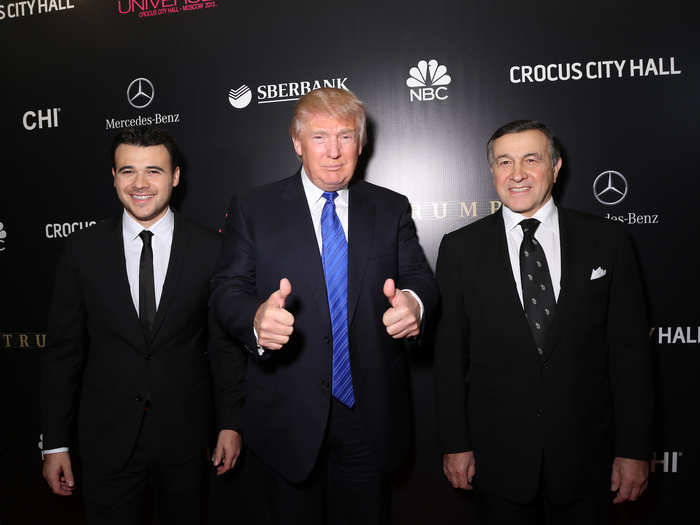
Emin Agalarov sent Trump Jr. a text message shortly after the election which read,
"Don!!! Amazing run and a glorious victory!!!!! Congratulations to you and your dad, we are proud and happy for you !!!!!! Always at your disposal here in Russia [] Emin and Aras Agalarov@."
The close relationship between the Agalarov and Trump families is a subject of interest by both the Mueller probe and congressional investigations, which are both looking into the extent to which Aras and Emin Agalarov served as go-betweens for the Trump campaign and Putin.
In June 2018, Emin released a bizarre music video for a song titled "You Got Me Good," in which actors playing Trump, Stormy Daniels, Michael Cohen, Hillary Clinton, Ivanka and Jared Kushner, and even Kim Jong-un reenact some of Trump's biggest scandals.
Sources: YouTube,US House of Representatives Select Committee on Intelligence
December 2016: Jared Kushner meets with Ambassador Kislyak to discuss setting up a communications back-channel between the Trump transition team and Russia.
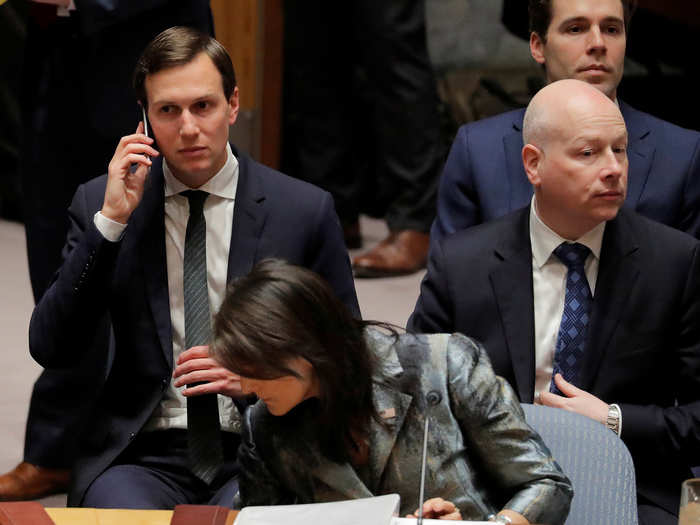
A month after Trump's election, White House advisor Jared Kushner and Russian ambassador Kislyak met to discuss setting up a "secret and secure communications channel" between the Russian government and Trump's transition team.
According to intelligence briefings reported on by the Washington Post, Kushner suggested using Russian diplomatic equipment and resources to facilitate the communications.
The meeting, which was not disclosed until March of 2017, was also attended by General Michael Flynn.
Kushner also reportedly met with Sergey Gorkov, the President of Russian state-run bank VEB, as part of the transition's efforts to establish a back-channel.
Such a back-channel never materialized, but the meeting became a subject of the Mueller probe and congressional investigations.
Sources: The Washington Post ,CNN
December 22, 2016: Gen. Michael Flynn, a national security advisor on Trump's campaign, reached out to Kislyak regarding a vote at the UN.
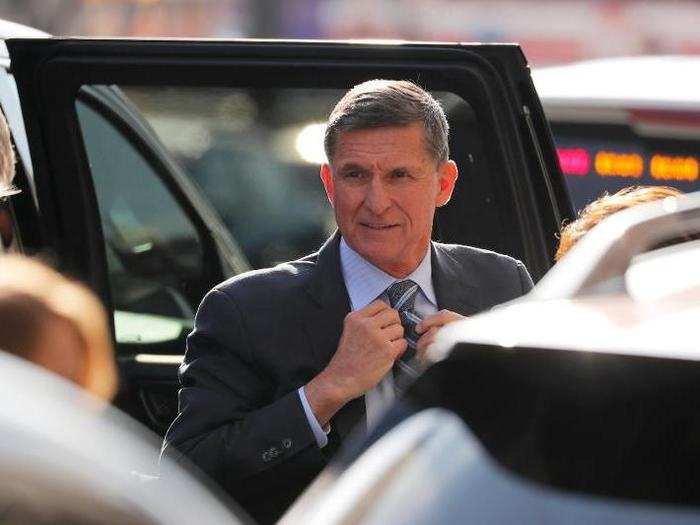
An indictment filed by Mueller's office in December 2017 revealed that Flynn contacted Kislyak requesting that Russia "vote against or delay" against a UN resolution regarding Israeli settlements in Palestinian territory.
Flynn struck a plea deal with Mueller to plead guilty on one count of making false statements to the FBI (regarding his communications with Russia) in exchange for cooperation with the special counsel investigation.
Flynn has cooperated with the Mueller probe since December 2017, and has not yet been sentenced. In a December 2018 sentencing memo, Mueller's team recommended a shorter sentence for Flynn, saying he had met with the special counsel's office 19 times and provided early — and invaluable — assistance.
The memo said Flynn "provided firsthand information about the content and interactions between [Trump's] transition team and Russian government officials."
Sources: Washington Post, Business Insider
December 29, 2016: Flynn and Kislyak continue to communicate on the subject of US sanctions on Russia.
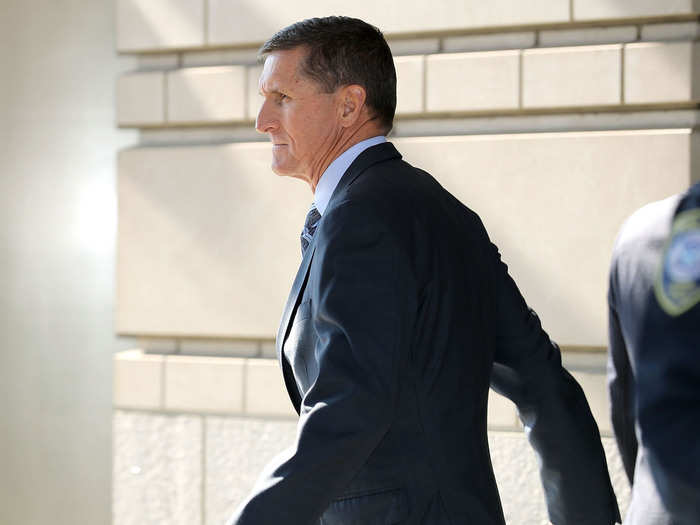
Flynn and Kislyak called eachother multiple times on December 29th, the day President Obama announced sanctions against Russia and the expulsion of Russian intelligence operatives from the US in response to Russian hacking and interference in the 2016 election.
The calls "occurred between the time the Russian embassy was told about U.S. sanctions and the announcement by Russian President Vladimir Putin that he had decided against reprisals," according to Reuters.
The charges filed against Flynn by the special counsel's office say that Kislyak contacted Flynn on December 31st to inform him that the Kremlin had decided not to impose retaliatory sanctions against the US "at the Trump team’s request."
Sources: The Washington Post, Reuters, The New York Times
January 9, 2017: Michael Cohen met with a Russian oligarch in Trump Tower.
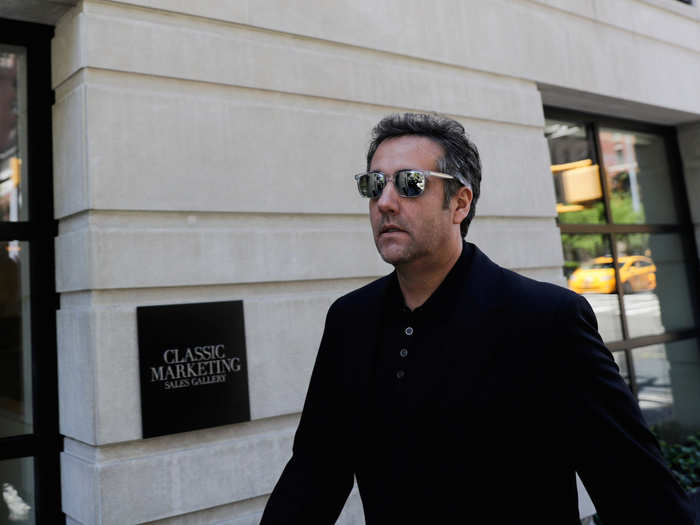
Cohen and Viktor Vekselberg, a Russian billionaire with ties to the Kremlin, talked about “a mutual desire to strengthen Russia’s relations with the United States under President Trump," according to the New York Times.
Andrew Intrater, an American business associate of Vekselberg's who attended the meeting, gave Cohen a $1 million contract for his consulting services shortly after the inauguration.
Source: New York Times
January 11, 2017: Erik Prince, founder of Blackwater, makes another attempt to set up a back-channel between Trump's team and Russia.
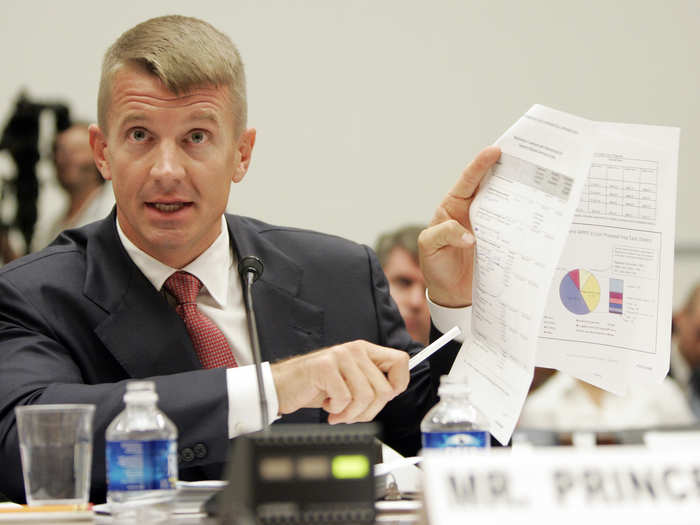
In January 2017, Erik Prince, the founder of private security firm Blackwater and the brother of Secretary of Education Betsy DeVos, met with Kirril Dmitriev, a Russian billionaire and the head of an investment firm sanctioned by the US Treasury Department.
Prince maintained that his meeting with Dmitriev was a chance encounter that only happened because they both happened to be at a luxury hotel in the Seychelles at the same time.
But George Nader, an American-Lebanese businessman who attended the meeting and is a cooperating witness in the Mueller probe, said the meeting was not only planned in advance, but was part of an effort to create an unmonitored back channel between the White House and the Kremlin.
In June 2018, Prince confirmed he "cooperated" with the Mueller probe, and allowed the special counsel's office to review communication records from his phone and computer.
Source: ABC News, Washington Post
January 17-20, 2017: Anthony Scaramucci, then a member of the Trump transition team's executive committee, met with Dmitriev.
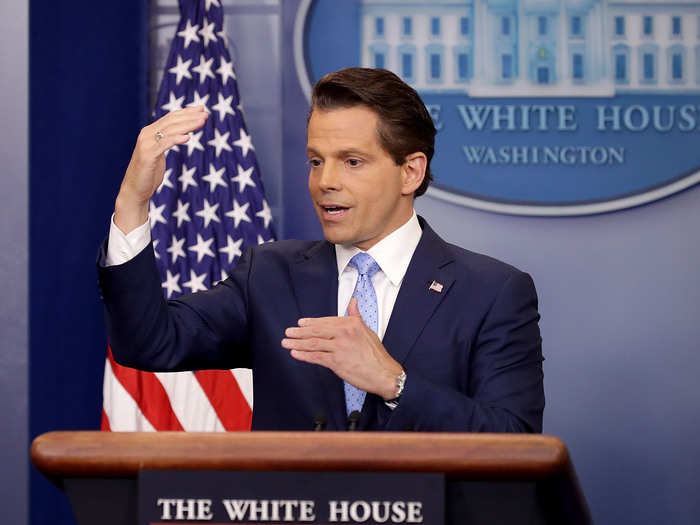
Scaramucci, who later served a 10-day stint as White House communications director, spoke with Dmitriev at the Davos World Economic Forum.
After meeting with Dmitriev, Scaramucci gave an interview with a Russian news agency in which he criticized Obama's sanctions for increasing anti-American sentiment in Russia.
Sources: New York Times, Russia Beyond
Popular Right Now
Popular Keywords
Advertisement